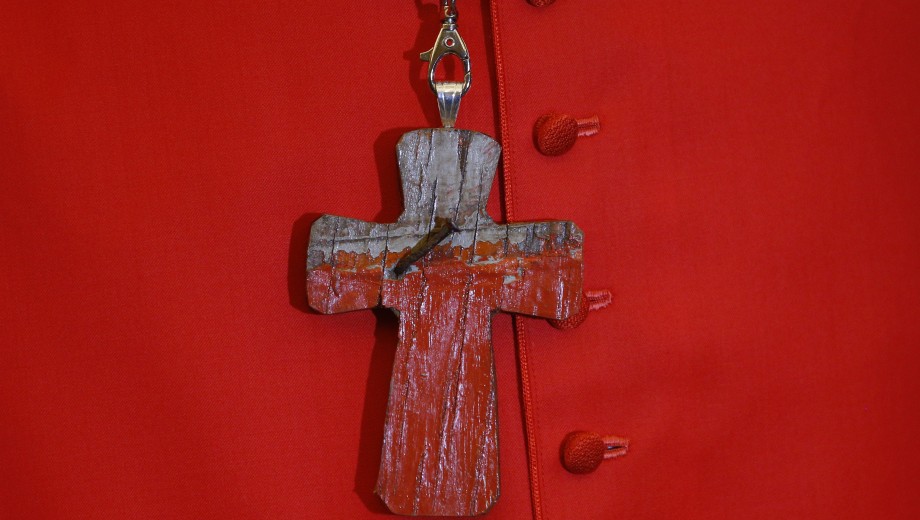In October 2019, Jesuit priest Michael Czerny, PhD’78, was made a Catholic cardinal by Pope Francis. The next month, he was revisiting the site of a military atrocity that had shocked the world and helped shape his life three decades earlier.
On November 16, 1989, members of a Salvadoran government battalion murdered six priests, their housekeeper, and her 16-year-old daughter in their residence at the University of Central America (UCA), a Jesuit university in San Salvador. It was a brutal episode in a prolonged civil war between El Salvador’s military government and leftist guerrillas known as the Farabundo Martí National Liberation Front (FMLN). The Jesuits, who worked closely with the poor communities most ravaged by the conflict, had been labeled as communist subversives by the government for seeking a negotiated peace.
As early as 1977, in a prior spate of anticlerical violence, pro-government flyers had advocated, “Be a patriot, kill a priest.”
This was the tense situation that Czerny, who had been ordained in Canada and earned an interdisciplinary humanities doctorate at UChicago, entered when he arrived in El Salvador in 1990. If UCA was to continue its educational and service work, the fallen priests—some of the most eminent scholars in Central America—would need replacements, and Czerny answered the call.
Czerny assumed duties as UCA’s vice rector and director of its Human Rights Institute. In the latter post, where he succeeded slain priest Segundo Montes, Czerny helped track and document human rights abuses by both sides of the conflict, providing “important inputs not only to public opinion inside the country but also with respect to the United States, whose own policies had an important role to play.” The United States had supported El Salvador’s government with billions of dollars throughout the civil war, and the elite battalion that massacred the Jesuits had been assembled and trained by US forces. But the murders helped sway American public opinion, eventually causing the United States to condition its support for the Salvadoran military.
While in El Salvador from 1990 to 1991, Czerny needed to think broadly and critically about issues of human rights in a Cold War context. He regards this kind of thinking as a duty, since “Jesuits have a mandate from Pope Paul VI to understand how nonreligious systems such as Marxism actually work and what their limitations and contradictions are.” His doctoral training at UChicago and dissertation on Marxist and Christian thought also helped prepare him for this work. He applied to the University’s Committee on the Analysis of Ideas and Study of Methods after being “very impressed” by the intellectual approach of a fellow Jesuit, Michael J. Buckley, PhD’67, who had earned his doctorate from the committee. Of his own experience on campus, he says, “‘Inspired’ and ‘supported’ would certainly be two key words.”
One of the fallen priests had also received graduate training at the University of Chicago: social psychologist Ignacio Martín-Baró, AM’77, PhD’79, who had spent Autumn Quarter 1978 living together with Czerny at a Jesuit residence in Hyde Park. The loss of Martín-Baró inspired the Ignacio Martín-Baró Program, established by UChicago president Hanna Holborn Gray, which supports advanced graduate students in designing and teaching original courses on politics and human rights in Latin America.
When Czerny returned to UCA to commemorate the 30th anniversary of the killings, he met with old friends and reflected on the past and future of El Salvador. “One of the things I found very touching was the rededication of YSUCA, the radio station which I founded and opened at that time,” he says, adding that it was a dream of the slain rector to open up this channel of communication with the Salvadoran people and better represent their hopes and needs.

